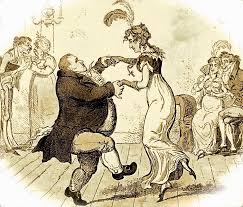Seventeenth Sunday in Ordinary Time
“The kingdom of heaven is like a treasure buried in a field, which a person finds and hides again, and out of joy goes and sells all that he has and buys the field. Again, the kingdom of heaven is like a merchant searching for fine pearls. When he finds a pearl of great price, he goes and sells all that he has and buys it.” Mt. 13: 44-46
There’s a story that takes place in the Eastern world of long ago. It’s a tale about freedom. It’s called “The Diamond.”
It goes like this:
A wise man had reached the outskirts of a village and settled down under a tree for the night when a villager came running up to him and said, “The stone! The stone! Give me the precious stone!”
“What stone,” asked the wise man?
“Last night God appeared to me in a dream,” said the villager. “And he told me that if I went to the outskirts of the village at dusk, I would find a wise man who would give me a precious stone that would make me rich forever.”
The wise man rummaged in his bag and pulled out a stone. “He probably meant this one,” he said, as he handed the stone over to the villager. “I found it on a forest path some days ago. You can certainly have it.” The man gazed at the stone in utter wonder and astonishment.
It was a diamond!
Probably the largest diamond in the whole world, larger than a person’s head.
He took the diamond and rushed away. But then he found that he couldn’t sleep. All night he tossed about in bed. Something was bothering him. Finally, he figured out why he was so troubled.
So, the next day at the crack of dawn he woke the wise man and said, “Give me the wealth that makes it possible for you to give this diamond away so easily.”
Today’s gospel parables are about freedom … the freedom, the sense of detachment, that makes it possible for us to “give the diamond away so easily,” that makes sure nothing gets in the way of what we truly believe is most important in our life.
In the parable of the pearl of “great price,” the man finds something so valuable, so precious to him, that he’s willing to let go of all he has to purchase it. The same is true in today’s other parable of the person who finds treasure in a field and sells all he has to buy and own the field and the treasure it holds.
Both men discover what’s most important in their lives and decide to not let anything get in the way of obtaining it.
The consequence is:
Both men are filled with joy. They’re free! They no longer are possessed by the demons of “want” and “have-to-have.”
What is it that will bring you and me that kind of freedom and joy? What will liberate us from being burdened by the constant pressures of ambition and greed and the tyranny of “more”?
Or putting it another way:
Where is it that we can find this “treasure” that Jesus is teaching about?
I certainly do not presume to have the full answer to questions like these. But I wonder …
I wonder … would the “treasure” be found in doing everything we can to find a way for enemies to become friends, to erase racial and ethnic divisions, to end family squabbles, to feed hungry people, to end war once and for all?
I wonder … would the “treasure” be found in our giving anything – anything at all – to see children around the world educated, religious people united, and humane programs funded?
I wonder … would the “treasure” be found in each of us being swept away with joy and enthusiasm over the possibility of putting an end to enmity and bigotry and hate and fear?
I wonder about all of this because it seems to be the “pearl of great price” that Jesus is talking about.
In these parables we heard today, Jesus clearly invites us to let go of our gigantic egos, our addiction to finding the “diamond,” our compulsion to keep looking for the wealth that will “make me rich forever” – to let go of all of this and to begin a re-ordering of our whole value system.
These parables – and so many others like them – call us to embrace a new mind set, a new way of living in the world. It’s what Jesus calls the “kingdom of heaven” … the development of a world in which the God of Jesus reigns supreme in the hearts of humankind.
The invitation Jesus is extending to us is to embrace a view of life, a value system that is contrary to the “way of the world.” Instead of being influenced primarily by the marketplace, with all the stresses and pressures that come with it, Jesus urges us to find another way to cherish God’s creation, another way to have access to a life-changing experience of being free, at last.
The problem, of course, in following the path of Jesus is that there is a cost, the cost of discipleship, the cost of beginning to live a life of subtraction instead of addition, a life of letting go rather than adding more, a life focused on giving rather than getting.
This is a hard thing to hear for those of us who live comfortably. “Letting go” sounds too much like being a loser.
The Franciscan writer Richard Rohr puts it this way:
“The scarcity model is the way we’re trained to think: ‘I am not enough. This is not enough. I do not have enough.’ So, we try to attain more and more, and climb higher and higher. Thomas Merton said we spend our whole life climbing the ladder of success, only to discover that when we get to the top our ladder is leaning against the wrong wall.”
Jesus invites us to climb down from the ladder, open our hearts to deep prayer, experience the abundance of God’s great love, and embrace the joy and freedom of “the kingdom of heaven.”
This is the choice Solomon made in today’s first reading. According to the Old Testament’s first Book of Kings, he is seen as the ultimate “wise man” because he chose not to prioritize “a long life for himself, nor riches,” but “understanding so that you may know what is right.”
In other words, Solomon had the inner spirit, the “wealth” that made it possible for him “to give the diamond away … easily.”
For this, he was rewarded with a “pearl of great price” – the gift of wisdom, the gift of “a heart so wise … that there has never been anyone like you up to now, and after you there will come no one to equal you.”
Now there’s a “treasure” we can all seek to acquire!
Ted Wolgamot, Psy.D.






